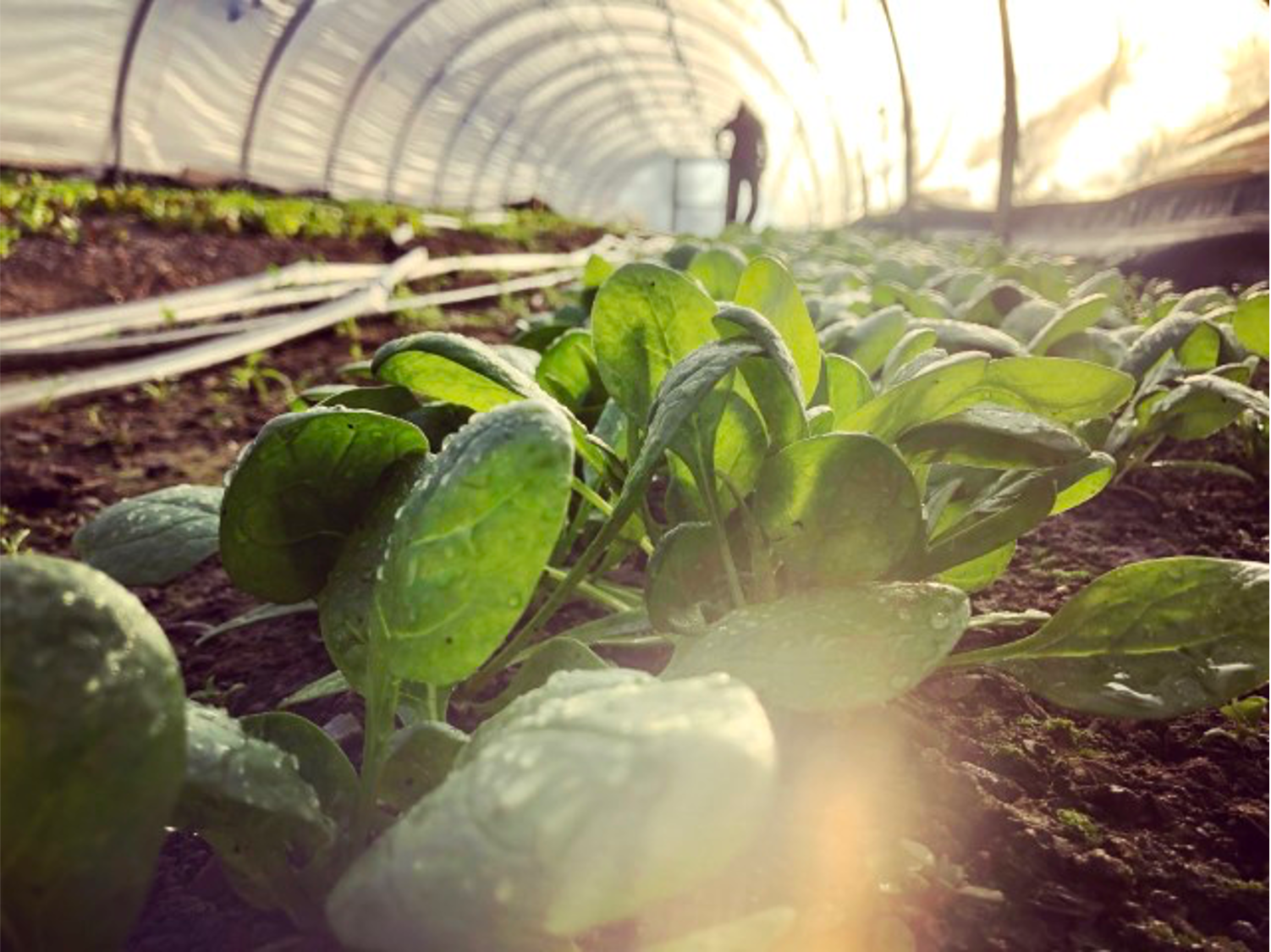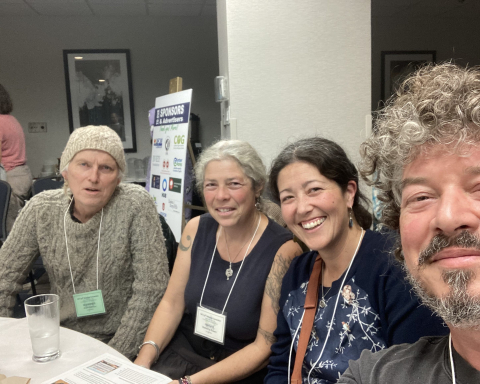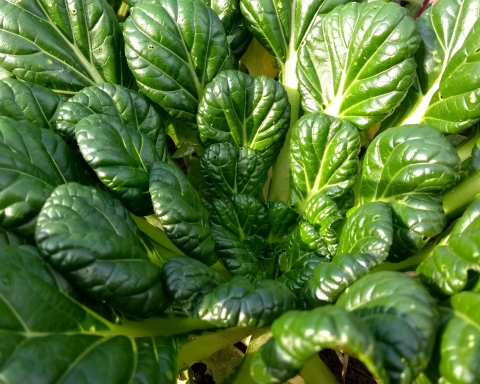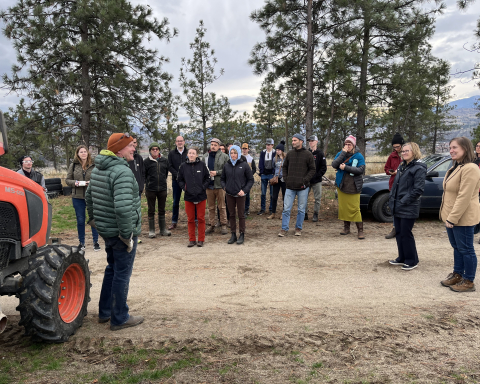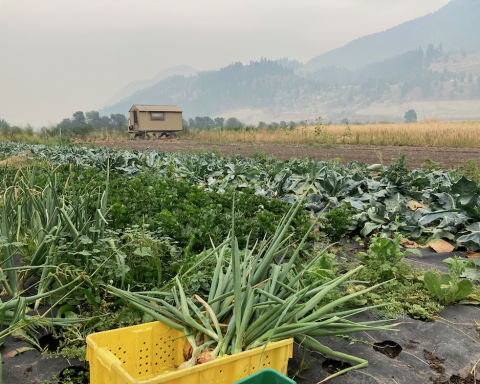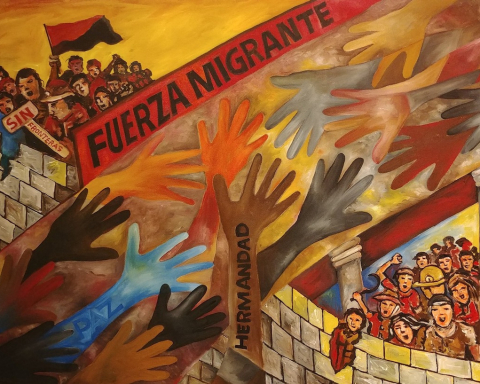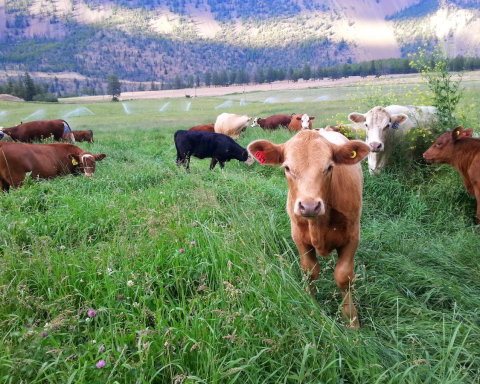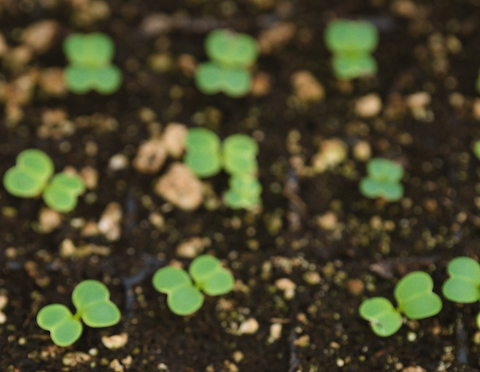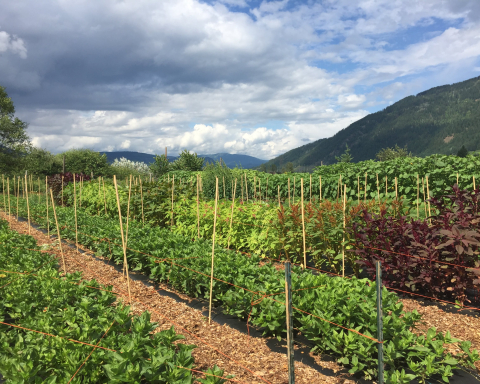Stacey Santos
You’ve heard it a thousand times, but I’m going to say it again. This past year was a year like no other. The pandemic affected—and continues to affect—every aspect of our lives: our health, our social lives, our businesses. It’s been a year of humbling learning experiences, pivoting to new directions, and figuring out that it really doesn’t matter if your naked toddler interrupts your Zoom call to ask you for help with her dragon costume.
Throughout all of this, we’ve watched the organic community come together under pressure and become stronger and more supportive than ever. And while the ride isn’t over yet, we were so happy to be able to take a moment and reconnect with many of you at the 2021 BC Organic Conference.
This year’s conference took place on February 28, 2021 and was entirely virtual (we hoped we would be able to carry out some socially distanced farm tours, but alas). Conference attendees had early access to 40-plus podcasts spanning all aspects of food systems and organic farming in BC as well as a chance to bid on some fantastically creative items in the silent auction.
The live event was a giant Zoom call with opening remarks from Heather Stretch (COABC president), Eva-Lena Lang (COABC executive director), Ian Paton (opposition critic for agriculture) and the Honourable Lana Popham (Minister of Agriculture, Food and Fisheries), who hinted at big announcements coming from the provincial government on food hubs, support for local seed production, and changes to meat regulations!
Farmers Take the Lead
Next up was the conference keynote from Darrin Qualman, Director of Climate Crisis Policy & Action at the National Farmers Union. Darrin spoke about emission problems and organic agriculture solutions, and wrapped up with a Q&A session with conference attendees. In case you missed it, or want to relive the conference magic, you can watch Darrin’s presentation on our YouTube channel.
COABC Awards…with a Virtual Twist
Normally, our annual COABC awards are presented at the conference’s closing banquet. This year, we obviously couldn’t do that—so our conference coordinator, Jordan Marr, got creative.
In our conference podcast, we surprised the award recipients with the news, and at our live conference session, we gave them a chance to say a few words in front of their peers. And, gave their peers a chance to say a few words about them!
This year, Mary Alice Johnson and Rod Reid received the Bedrock Award, and Arzeena Hamir took home the Brad Reid Award. There isn’t enough room here to say all that needs to be said, so please head over to our blog to learn more about the winners and why they’re so incredibly deserving of their awards.
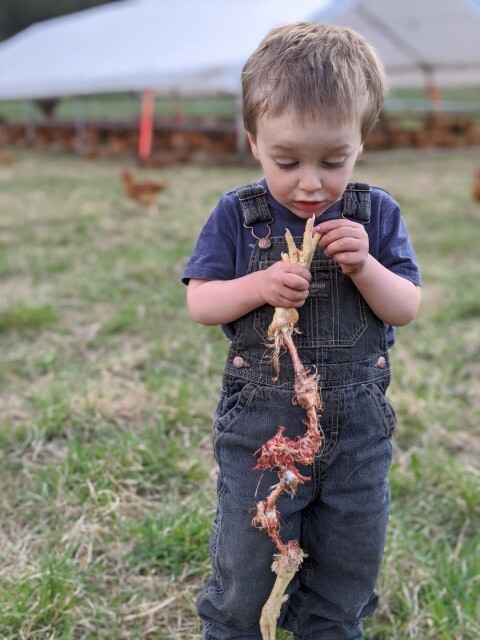
Credit: Spray Creek Ranch
And so Much More
Conference attendees also took part in three Q&A sessions with podcast guests and voted on their favourite images in the photo contest. The live session wrapped up with a small group visioning discussion, to take the pulse of the COABC community and make sure the organization knows what’s going on and what’s important to everyone. It was a great discussion with some big ideas, and as always, we thank you for sharing your thoughts so honestly and generously.
A big part of what made this conference so special (other than seeing so many of your shining faces, of course), was all the planning and work that went into it. This was a brand-new format for us, and it took many folks wearing many different hats to make it happen!
For some final insights into the conference and some thoughts on what’s next, I caught up with Jordan, this year’s conference coordinator and podcast producer for Q&A:
The 2021 BC Organic Conference was a radical change from past conferences. How did it all come about?
The first question for the conference committee was to decide whether we’d have a conference at all, and in what format. As a committee we collectively decided it was worth having something for continuity, and because we could produce something of value. We knew we couldn’t reproduce the social component, but could reproduce the networking and education components in some way. We decided to have a virtual conference and started brainstorming!
I suggested that we consider making an audio series rather than webinars, which tie attendees to a screen. A podcast is a great way to consume information and would be more accommodating to people’s busy lives. The committee briefly talked about it and ultimately agreed it was a good idea. That was the first major decision and from there we came up the rest of the details.
The podcast really was the centrepiece of the conference in terms of the amount of content it involved. How did you pull it off?
I had produced a hobby podcast for years and I’m super comfortable with the basic technology and the audio software. No question marks there.
But, this was the first time I oversaw a team of interviewers. The volunteer interviewers were really great! In some ways, organizing the interviews wasn’t all that different from organizing speakers at the conference. But, it’s cheaper and easier to get people involved. It was a really busy November and December when the podcast got recorded and produced.
From a coordinator’s perspective, how did the conference go?
I think the most positive way to look at it is that we had to start from scratch and figure out what to do. If someone from the future told us we’d have almost 200 people participating, and a podcast with almost 40 episodes, not including the tradeshow episodes…
Overall the conference was fairly well received, and so was the podcast. One special thing about the podcast is that it very much turned into a podcast about the BC organic community, by the BC organic community. Not many farming and food podcasts are so focused on British Columbia. That’s something worth keeping in the future.
And the live session—I underestimated how special it would feel. I was skeptical of the online communication space. And after the year we’ve all had, it was really cool. If I had to do it all over again, I would have created a few more opportunities for small group interaction. The day was weighted too heavily towards large groups.
There’s talk of carrying the podcast into future years, even if we’re able to hold an in-person conference. Is there anything you would change?
For this year’s podcast, I took a light touch to editing. Next year I would consider having fewer episodes, with more time invested in each one.
An ongoing challenge, even in prior years, is choosing the right topics for the education sessions. That can only come from good participation. It’s hard for a small committee—even one like ours with good representation—to create a lineup of topics that would please a wide group of people. There’s a bias towards small to medium scale farmers, and with a committee, there’s also a bias towards the members’ own interests. And I can’t stress enough—I represent those biases.
When it comes to decision making, I had great support from the committee. But when the rubber hit the road, I made the decisions and I take responsibility for that. The podcast could have seen more representation as far as identity politics, gender perspectives, and people of colour. Also glaringly absent was enough content from BC-based Indigenous peoples.
It doesn’t hurt to try harder to get more perspectives presented, whether it’s the size of the farms or the perspective of different groups in the province.
Any parting thoughts?
It’s really great that so many people embraced this new idea. And if we have to do it again in this format, we’ll improve. We’ll miss the social elements though!
And, as a coordinator, I really had a lot of help with great support from the office. I had a lot of fun getting to know all the people. I also noticed more people signing up to play a small role in next year’s conference committee. The committee is mainly comprised of people on the COABC board or the board of a certifying body, but anyone’s welcome to join. On the conference evaluation, if you want to put your name forward, please do!
A big thanks to everyone who made the 2021 BC Organic Conference possible: Jordan Marr, volunteer interviewers, podcast guests, conference committee members, COABC staff & contractors, event sponsors, silent auction donors and the Institute for Community Engaged Research at UBC Okanagan for offering technical expertise, tools, and a physical space for broadcasting the online event. Until next year!
Feature image: Conference photo contest winner – category: closeup. Credit: Big Rock Ranch


